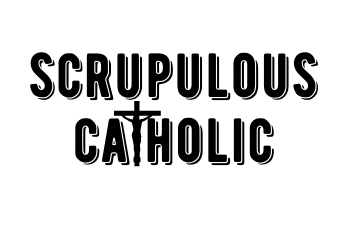With many people wanting to look and feel good about themselves, one of the first things they change is their hair. There are ways to style it. You can dye, braid, curl, extend, or cut it. If we talk about the Faith, as Catholics, it seems, that hair and faith have no connection. But, if we review the scriptures, you might be convinced that changing your hair can be a scary thing to do. That’s why in this blog post, we will clarify this. We will discuss if it is a sin to cut one’s hair.
Biblical Reference
As mentioned, there are biblical verses that prohibit cutting hair as follows.
“Do not clip your hair at the temples, nor spoil the edges of your beard.”
Leviticus 19:27
“They shall not shave their heads nor let their hair hang loose, but they shall keep their hair carefully trimmed.”
Ezekiel 44:20
“While they are under the nazirite vow, no razor shall touch their hair. Until the period of their dedication to the Lord is over, they shall be holy, letting the hair of their heads grow freely.”
Numbers 6:5
“whereas if a woman has long hair it is her glory, because long hair has been given [her] for a covering?”
1 Corinthians 11:15
Catholic Church on Hair
As Catholics, we do not depend just on the bible (there can be a lot of interpretations), we also consider what the Church has to say.
The Catholic Church does not provide any doctrine on hair length. However, it teaches us to be modest. Therefore, the faithful can cut their hair. As a matter of fact, there are religious congregations that cut their members’ hair.
One example is tonsure for Catholic Monks. It is a practice of cutting some or all of the hair on the scalp symbolizing their renunciation of the world and dedication to the religious life.
Another one is nuns having a short haircut as a symbol of giving themselves to God and giving up personal vanity, and the pursuit of a husband.
Woman
There are religious sects where women can grow their hair as long as it can reach the ground.
One of them based this belief on this verse as follows.
“For man did not come from woman, but woman from man; nor was man created for woman, but woman for man; for this reason a woman should have a sign of authority on her head, because of the angels. Woman is not independent of man or man of woman in the Lord. For just as woman came from man, so man is born of woman; but all things are from God. Judge for yourselves: is it proper for a woman to pray to God with her head unveiled? Does not nature itself teach you that if a man wears his hair long it is a disgrace to him, whereas if a woman has long hair it is her glory, because long hair has been given [her] for a covering? But if anyone is inclined to be argumentative, we do not have such a custom, nor do the churches of God.”
1 Corinthians 11:16
But, what does this statement really mean?
With the help of a Catholic Apologist, Bob Kirby from AskACatholic.com, I receive this great response.
“Paul views long hair as a defining element in the distinction between men and women (in Roman, Greek and Jewish culture men wore short or relatively short hair), according to custom, but really as a symbolic reification of the headship of man over women.
It is patriarchal.
Women are under the protection and headship of men (the hair is like a “tent”), but conversely, men are also tied inextricably to women inasmuch as they are born of women. This is an ordering that comes from Genesis 2 and creates both a hierarchy and equality, a paradox of sorts, but nonetheless a distinction of the roles of the sexes, which really serves to point us toward the relationship of man under God.
All mankind is under the headship of Christ, and though we are not equal to God, he has condescended to us to bring us into His own life. The veiling of women, which is really just the clothing form of the hair distinction (which reified the metaphysical distinction) serves as a reminder to us all of our places in God’s kingdom.
So, today you can see the culture seeking to dismantle all signs and evidence of distinction between the sexes, their roles, bodies and metaphysical dimension—-never mind the notion of a patriarchy ordering us under the headship of Christ.
For Paul, customs are significant because they can point to invisible truths—and Paul doesn’t just like customs for the sake of customs; he is the first one to get rid of anything that might interfere with pure and true worship. So for Paul to advocate for this act of women (having heads covered) really means he thinks it’s important for greater theological symbolism. That’s why in traditional Catholicism, women still use the veil for worship at mass. There could be an argument made that if the Catholic Church did a better job of holding on to traditions that underline good theology then perhaps the culture would not disintegrate so rapidly. More than any institution, the Catholic Church is the most important bulwark against the corruption of morals, philosophy, theology and metaphysics. But in these last decades we have undone ourselves. Let’s pray we can do better.”
Cutting your hair is not a sin
Now, let’s answer the question.
Is it a sin to cut your hair?
No. Cutting your hair is not a sin. The Church does not have any teaching about cutting your hair. However, it encourages us to value modesty.
FAQs
Is it a sin for a woman to have short hair?
No, it is not a sin. So if you are thinking of having a Pixie-Cut Hairstyle, you may do so. The Church does not prohibit you to cut your hair in whatever style you want.
Is it a sin to cut your hair as a man?
No. It is not a sin. So if you want to totally shave your head, you may do so without worrying you might be sinful.
Conclusion
There can different interpretations about hair cut in the bible. But as Catholics, we should always depend on the Church’s take on it.
According to the Church, cutting your hair is not a sin.
Instead of worrying if styling your hair could be a sin, might as well, think about how can you be modest and humble.
These two virtues will help us draw closer to Him.
That we may do the holy will of God, Loving Mother pray for us.

